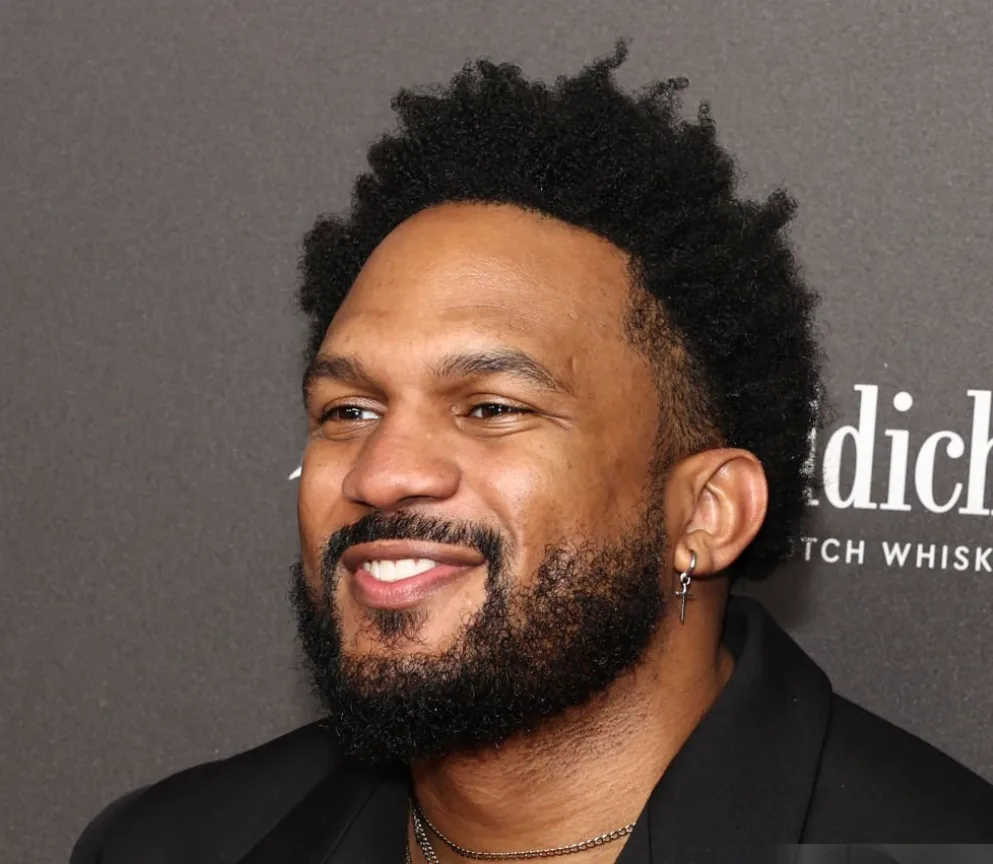5 essential crowdfunding tips from the CEO of Kickstarter
Kickstarter CEO Everette Taylor shares five essential lessons for funding, launching, and growing your business.

Photos of Ruby Scoops, a local ice cream shop in Richmond, Virginia, that financed its permanent location on Kickstarter, from Yelp users Kelly C. and Francisco P.
Kickstarter has launched many household names, from Oura Ring and Popsocket to Brooklinen and Allbirds. But for CEO Everette Taylor, one success story hits closest to home: Ruby Scoops, a Black- and LGBTQ-owned ice cream shop in his hometown of Richmond, Virginia.
“They were already making ice cream, and they needed a permanent space—a big space to bring in more people in,” Everette said. “I love seeing that. I love [seeing] entrepreneurs and small business owners who are already moving in the space be able to expand and make things bigger for themselves.”

Photo of Everette Taylor
Everette has been a business owner himself since age 19, when he dropped out of college to support his family and started an event marketing company. “I’ve always had a very hustler mentality,” he said. “I’m from southside of Richmond, and it’s all about figuring out ways to make money and get by. I felt like I’ve always had that entrepreneurial spirit—like I started off like buying candy at the store and flipping the candy at school.”
That same drive led Everette to head up marketing for global brands and build companies like PopSocial, MilliSense, ArtX, and GrowthHackers. Now, as CEO of Kickstarter, he’s launched a suite of new features designed to help entrepreneurs not just fund their projects, but also thrive long term. Everette calls this transformation “Kickstarter 2.0.”
“Before it was like: ‘Hey, you raise your money. All right, good luck. Go out into the world. Hope you’re successful.’ With these [pre-launch] and post-campaign tools, we’ve… allowed people to be able to be successful throughout their entire journey,” he said.
Below, Kickstarter’s CEO shares five key lessons for business owners at any stage. Whether you’re searching for a permanent home for your small business or seeking funding for your next big idea, these insights can help turn your business dreams into reality.
1. Always be curious and continue to innovate
“I started [my first company] at 19 years old. I was actually early in my sophomore year at Virginia Tech and I had to drop out to go back home and help out my family. I was working at Joann Fabrics. I was making minimum wage… but one of the things that I was really talented at was throwing parties. So I had this idea to start throwing parties in my hometown, and that’s when my first company came about called EZ Events.
“Me and a couple guys built an event marketing platform to tie in with EZ Events. Think Eventbrite: You could buy tickets, you could also get pictures and pay for pictures from the event… A couple years later we sold it, and I find out maybe six months later, that company sold for way more than what I sold it for.
“So what did that teach me? One is to know how to value yourself, know what you’re building, and understand the market. I was a kid from southside of Richmond. I didn’t know anything about Silicon Valley. I didn’t know anything about [software-as-a-service] (SaaS) companies. I wish I would’ve stayed curious, continued to innovate, and things like that.”
That was a really valuable lesson for me as a small business owner and entrepreneur, to understand my value, but also continue to innovate and stay curious.– Everette Taylor, CEO of Kickstarter
2. You don’t have to give up equity to grow
“Kickstarter is reward-based crowdfunding. When you’re on a platform like Kickstarter, not only is the breadth of different things you can raise [money] for crazy—like we have people who are doing everything from film and theater to comics, to games, to fashion, to tech products, to music—but also you’re not giving up any percentage of your company.“ Venture capital really isn’t for small business owners. It just isn’t. People who invest in companies with venture capital, they don’t want a $1 or $2 million business. That’s super profitable and super impressive, right? You can live an incredible life in that way. But venture capitalists want that billion dollar exit… And when they invest in you, they can take a large chunk of your company. Founders have been kicked out of their own company, so that’s difficult.
“With Kickstarter, you own 100% of your company. You build your own community on the platform and get access to millions of people that are using the platform. You get to be able to establish product market fit to see, ‘Hey, is this something that actually makes sense for me?’ At the end of the day, this is non-dilutive money, and you can raise an incredible amount of money on the platform—even more than you may have gotten from venture capital.”
3. Crowdfunding requires a true marketing strategy
“We have people raising millions of dollars on the platform, but the caveat to this is that you have to give something back. You have to deliver a film. You have to deliver a product. You have to really deliver. So it puts that pressure and that accountability on creators to really deliver.
“You have to have a true go-to-market strategy. A lot of people make this mistake of [thinking]: ‘Kickstarter has millions of people on the platform. If I just launch it, this thing is gonna get funded.’ No, you have to have a true marketing strategy. You can’t be overly reliant on social media, especially with the changes in the algorithm and things like that.
“The [other] thing I will say is from a marketing perspective is understanding what resonates with people… and understanding what your target audience is before you even start to raise money. Where do they live? Are they in Reddit threads? Are they at physical events? Figuring out where your audience lives is also extremely important as well.”
4. Be ambitious, and stay true to your north star
“Marketing really taught me to be quick on my feet. [Being Chief Marketing Officer at Artsy] was really incredible for me, but also it showed me that I don’t have as much breadth and influence as I would like to have within an organization.
“I’ve been a CEO-founder myself, and I see the power of being able to call the shots in a sense. So I knew that I wanted my next role to be a CEO. I literally looked at my CEO at the time, dead in his eyes, and I said, “Hey, I want your job—not like to take your job, but one day I want to be a CEO.” And he really took me under his wings to help mentor me to that point.
“Now, I wouldn’t suggest saying that to your boss, ever. But I was very intentional. I knew where I wanted to go. Recruiters would reach out to me about big CMO jobs; I would turn them down because I knew that my path was to be a CEO and that’s what I wanted. I stayed true to that North Star and it happened.”
5. There’s no shame in crowdfunding—especially when you’re providing value
“This is not begging for money. The humility that’s needed for people to do crowdfunding is high. But at the same time, I think some people think: ‘Oh man, I can’t. I feel like I’m just asking people for money.’ No, you’re delivering value into the world. You’re bringing something new, something of value, that people want to support or have for themselves. You’re building a business, you’re doing a film production, you’re making a movie, you’re making an album.
“And if you can deliver it, those are gonna be your biggest supporters. I tell people all the time: I don’t care if you have a million followers on Instagram, those 5,000 people on Kickstarter that support you—those are your true, true supporters.”
These lessons come from an episode of Behind the Review, Yelp & Entrepreneur Media’s weekly podcast. Listen or watch below to hear more from Everette, or visit the show homepage to learn about the show and find more episodes.